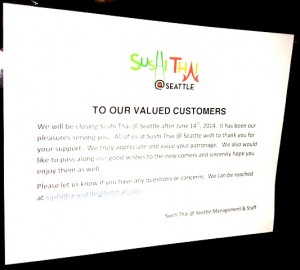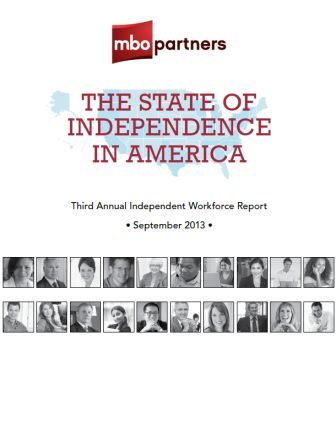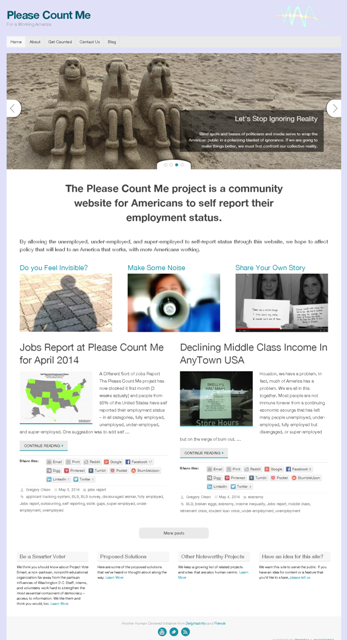Yes, chicken feed, as in a meaningless pittance. The conversation about employment falls short of what is needed.
This blog post is actually inspired by a friend of mine. She is a smart, educated science teacher that in spite the cries for more women needed in STEM jobs she remains among those experiencing long-term unemployment. In response to a recent article about how states are confronting high long-term unemployment (original article here ) she shared this comment.
“My state has decided to sweep us all under the rug and pretend we do not exist. SO much easier that way!! You do not HAVE to deal with it then, as long as you can hide all of us in plain site.”
 We live in an era of make-believe.
We live in an era of make-believe.
It is a bit reminiscent of another time in recent history when officials banned the word tornado. They didn’t want to cause panic. The result was tornadoes still happened and in the absence of warnings, more people and property were unnecessarily harmed, or worse. See related article here.
When we make things visible we can then actually decide to act differently. If we don’t believe in the viruses and bacteria that are invisible to the naked eye then the conversations about preventing infectious diseases are pretty short. We accept germ theory as reality today, but that was not always the case. Before 1880 physicians and scientists believed that diseases such as cholera, chlamydia or the Black Death were caused by bad air. This was referred to as Miasma theory and was in place since ancient times. Learn more here.
Today, we are still lingering in the aftereffects of a global economic meltdown. Some are working too much; others not enough. Save for the extremely wealthy, many have had their fortunes trimmed and debts amassed. The American [insert country here] Dream has been scaled down for many. This seems to be part of the new normal, at least for now.
The World of Work Has Changed.
There are many things that have contributed to a structurally changed world of work. We have witnessed the flight of capital to low cost regions, the shuttering of businesses old and new, the avoidance of taxes by large corporations, increased consolidation in many industries, the resulting financial hardship of municipalities, the creation of exponential organizations that employ a disproportionately small number of people compared to the large number of people they serve (see WhatsApp as a classic example – 55 employees, $19 billion purchase price, 100’s of millions of customers), a gig economy where workers’ rights have largely evaporated, an anti-labor movement by many politicians (some even repealing the weekend), the financial engineering that manipulates markets and even the books of entire economies as we recently learned about Goldman Sachs and Greece. What country or state will pop up next as problematic?
Add to this, an increasing world population and technology that continues to advance and the world might arguably need fewer workers today and in the future. There is too little discussion and proposed solutions in the crossover from the old economy that is still shedding jobs and the new economy that doesn’t create them fast enough. With the most recent announcement Microsoft will have now shed 1/5 of its workforce in recent years. What if our thinking and conversations about the economy and jobs are antiquated. When our ready made patterned solutions don’t seem to be working maybe it is time for change, time to invent new patterns. Making things visible and having a different conversation would be a great start.
Confronting reality is also needed. If we aren’t looking at real employment numbers for the unemployed, under-employed, and those that are super-employed working too many hours, then we really can’t have an meaningful adult conversation about what might be required to improve the plight for the residents of a nation.
Imagine if the U.S. census utilized the same land-line telephone survey methods that the BLS uses for arriving at unemployment numbers. It would be wholly inadequate and it would actually violate the constitution that requires an accurate census every 10 years. See how the census works. I would not be shocked if the many cogs in the BLS machine felt this inadequacy, but lack the courage to sound the alarm, for fear they too, will join the ranks of those they presume to measure.
If, as a nation, we can include all people in a census, file taxes electronically, manage social security and a host of other big government data challenges, then can’t we also design and implement a meaningful index to measure the prosperity of a nation’s inhabitants. Of course we can. This is a solvable problem; it isn’t the equivalent of “jumping to the moon under your own power.”
GDP and corporate profits can be up and to the right, while at the same time, those that helped it get that way may experience personal decline in terms of real wages, household wealth, and overall prosperity.
Aggregate GDP and UI numbers roll up from individual human inhabitants that reside within a nations borders. Local governments and state governments have a easier problem to solve – the borders are simply smaller. A sorely needed innovation in government is the roll-up of meaningful numbers from households, to neighborhoods, to cities, to states, to regions, to countries. This isn’t unique to the United States.
The Legatum Index is a move in the correct direction. The Legatum Institute’s signature annual publication is the Legatum Prosperity Index™, a unique global assessment of national prosperity based on both wealth and well being. This Index is the main vehicle through which the foundations of prosperity are explored. The Index ranks countries based on their performance in eight sub‐indices, including Entrepreneurship & Opportunity, Governance, Personal Freedom, Health, and Social Capital. While not working from the individual level, it does at least take into account a multitude of factors when looking at the comparative prosperity of populations. Learn more about their fine work here or watch the video.
With respect to jobs, the jobless recovery, and all things employment, we’ve returned to an era of noxious air. But, the bad air in play today isn’t from rotting organic matter as it was in Miasma theory.
Rather, it is from politicians and economic royalists that have much to protect by ignoring our current collective reality and instead protecting a system that primarily benefits them at all costs.
When we start measuring human prosperity we can then put in place policies that help increase that prosperity. It is a bit reminiscent of the Declaration of Independence and the “people first” reforms of the Roosevelt era.
In the current political climate I wouldn’t hold your breath for such change, but meanwhile you might want to cover your nose. If this article resonates with you, please share it with other on behalf of the many that remain silent and invisible.
about the author
Gregory Olson is the author of The Experience Design Blueprint, a book about designing better experiences and then making them come true. As discussed in Chapter 14 of The Experience Design Blueprint, the world of work has changed. And, it is not coming back as we knew it. In this chapter, there is prescriptive guidance for:
- large businesses
- established small businesses
- retirees and volunteers
- underemployed
- unemployed
- Congress and other policy makers
- and co-working spaces everywhere.
His latest book is L’ impossi preneurs: A Hopeful Journey Through Tomorrow, a light-hearted and deadly serious book about a brighter future where we live more meaningful lives, governments invest in people and sustainable progress, and technology serves  humans. Chapters in L’ impossipreneurs that pertain to this article include Ch 5: Wealth and Economy and Ch 12: World of Work.
humans. Chapters in L’ impossipreneurs that pertain to this article include Ch 5: Wealth and Economy and Ch 12: World of Work.
Gregory Olson founded strategy and design firm Delightability, LLC. with the belief that if you delight customers then success will follow. He believes that we all have the potential to do better, as individuals, organizations, and communities, but sometimes we need a little help.



 The World of Work Has Changed
The World of Work Has Changed



